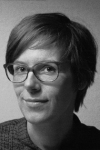Things are still desperate. There is a hopeful moment in Ben Solomon’s interactive film report from the front line in East Mosul. ISIS forced their own hideous curriculum on schools, but in one school where he filmed, only 20% of the pupils had been turning up. Now with ISIS gone they are flocking back. West Mosul, where the old town lies not far from the river, isn’t free yet. Here’s a picture of – believe it or not – a Jewish boys’ school in old Mosul, Lawrence Kedoorie School, from before 1951.

It comes from Ezra Laniado’s 1981 book on the Jews of Mosul (only available in Hebrew).

One of the endpapers even has a map of the small Jewish quarter and in my copy of the book my father circled his address on it in red pen. It was one street back from the Souk al-Kasibin (market of the butchers) which must have been the busiest place in the community. There’s what looks like a child’s drawing of it in the book, by Gabriel Laniado. You can see children playing, people selling bread and fish, and a barber’s shop. The clothing including turbans or keffiyehs doesn’t indicate religion or ethnicity and I’d guess the people shown would all have been Jews.



